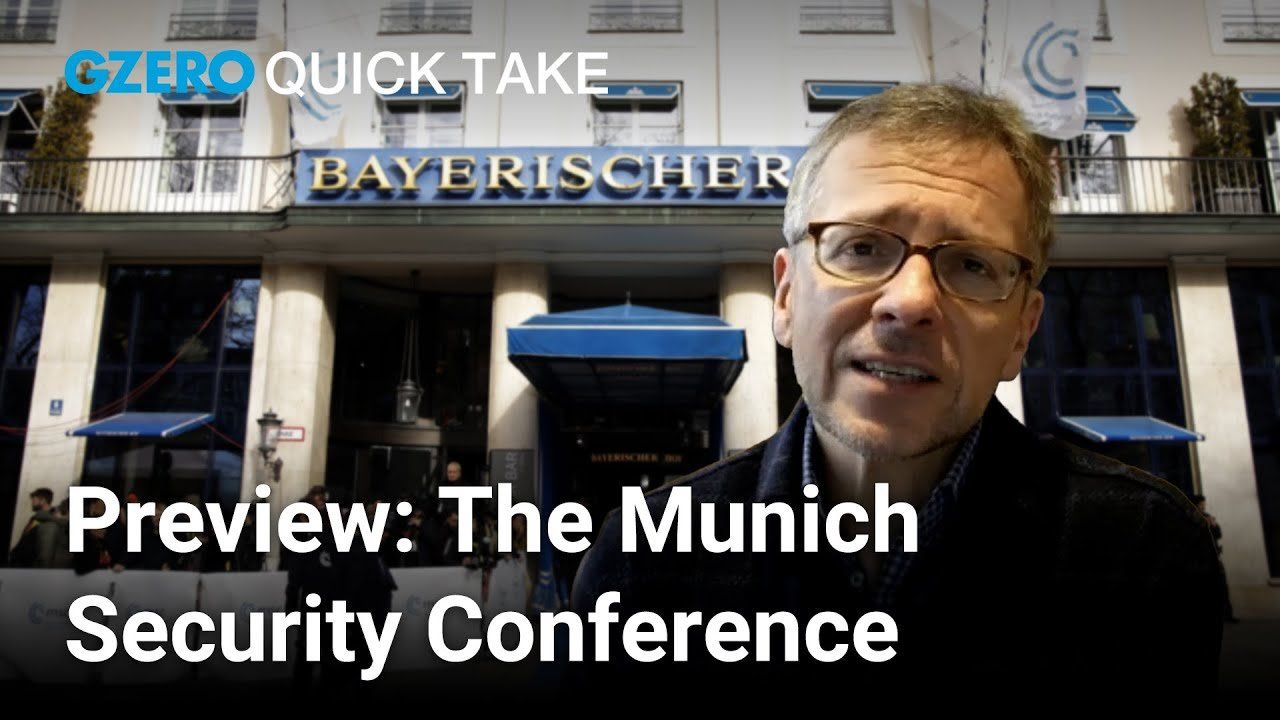Quick Take
Munich Security Conference 2024: What to expect

Munich Security Conference 2024: What to expect | Ian Bremmer | Quick Take

Ian Bremmer's Quick Take: Hi, everybody. Ian Bremmer here. It is the Munich Security Conference. It's that time of year, yet again, the 60th Munich Security Conference this year. And you would think that that would be like a big anniversary. It's like platinum or diamonds or something very valuable and exciting. And yet the value of the conference is becoming undermined. And it's becoming undermined not because it doesn't matter, but rather because leaders are less committed to it.
And that is a very deep concern. There's no annual theme to this year's conference, but every year they do put out an annual report. Came out a couple of days ago, and the theme this year was “lose-lose” dynamics. In other words, less focus on multilateralism, less focus on collective security, less focus on global cooperation and instead a prioritization of individual gain of countries and even of leaders. And that's not a great backdrop against a incredibly contentious US election, a war between Russia-Ukraine that isn't going very well, certainly not from the perspective of those that are attending the security conference and also a Middle East war that is expanding and threatens to get the Europeans and the Americans more and more involved. A couple of things that are worth paying attention to that may not be getting as much attention outside Germany.
One is that Christoph Heusgen, the chair of the conference and a good friend of mine for many years now, has come out saying that Trump has a point in terms of his strong criticism of NATO nations not meeting their 2% defense goal. And that, of course, especially means Germany, which is the largest economy in Europe. And they've made lots of commitments, but they've got an economic crisis right now, and there are lots of competing demands inside that country that don't focus on security and defense after all. Germany, not a frontline country dealing with Ukraine or Russia a little bit farther back. And you can really see defense spending fall off the farther you get from Russia, unless, of course, you're talking about the United States.
Another thing that's worth paying attention to and it's going to make it a little harder. Germany last year perceived Russia as their number one security threat.This year, Russia's fallen to number seven. Top issues for the Germans, mass migration and radical Islamic terrorism. That is the Munich Security index that they, you know, sort of take surveys of attendees and of participants. And it's very interesting to see that. That's similar to the view that I got at Davos a few weeks ago. And just talking to people around the world outside of these conferences, Ukraine is nowhere close to the level of prioritization these days, even for countries that are pretty close to it, that it was getting 6 months ago, 12 months ago, 24 months ago, and that, of course, is also a very big problem for the Ukrainians, a very big problem for the frontline states like the Estonians and the Poles and the Nordics, who consider this their top priority but having a harder time telling others that that's what really matters. So those are some of the issues we're looking forward to discussing and you'll be hearing from us again real soon.
100 million: The number of people expected to watch the Super Bowl halftime performance with Bad Bunny, the Puerto Rican superstar and newly minted Album of the Year winner at the Grammys.
Think you know what's going on around the world? Here's your chance to prove it.
An imminent US airstrike on iran is not only possible, it's probable.
Americans are moving less — and renting more. Cooling migration and rising vacancy rates, especially across the Sunbelt, have flattened rent growth and given renters new leverage. For many lower-income households, that relief is beginning to show up in discretionary spending. Explore what's changing in US housing by subscribing to Bank of America Institute.